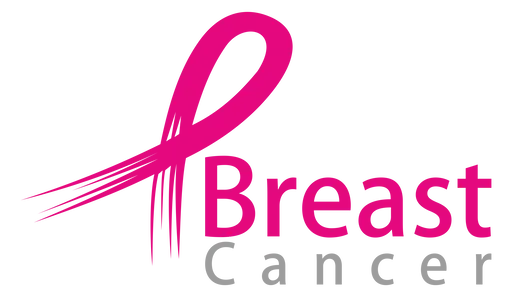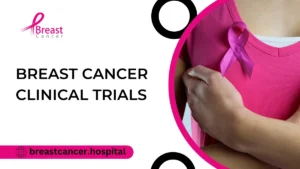Breast cancer awareness day is on October 13th it serves as a crucial reminder of the importance of early detection, prevention strategies, and support for those affected by breast cancer. This blog explores the significance and effective ways to prevent breast cancer, and how awareness campaigns play a pivotal role in saving lives.
What is Breast Cancer Awareness Day?
Breast Cancer Awareness Day is a global initiative designed to educate people about breast cancer, reduce stigma, and promote early detection.
Key Objectives of National Breast Cancer Awareness Day:
- Highlight the importance of regular screenings and self-exams.
- Share vital information about risk factors and ways to prevent breast cancer.
- Support survivors and honor those lost to the disease.
- Fundraise for research and treatment advancements.
Breast Cancer Awareness Day plays a crucial role in the broader Breast cancer Awareness tips, ensuring breast cancer awareness day remains a public health priority.
Breast Cancer Prevention and Symptoms
Early awareness can save lives. Knowing how to reduce your risk and recognizing symptoms is essential.
Ways to Prevent Breast Cancer
- Maintain a Healthy Weight: Obesity increases breast cancer awareness day risk.
- Exercise Regularly: Physical activity helps regulate hormones.
- Limit Alcohol Consumption: Alcohol can elevate estrogen levels.
- Breastfeed if Possible: Breastfeeding lowers the risk of certain types of breast cancer.
- Healthy Diet: Include fruits, vegetables, and whole grains while avoiding processed foods.
Additional Tips:
- Avoid smoking and exposure to carcinogens.
- Discuss genetic risks and preventive options with your doctor.
Symptoms to Watch For:
- Lump or thickening in the breast or underarm.
- Changes in breast size, shape, or appearance.
- Skin dimpling or redness.
- Nipple discharge or inversion.
Pro Tip: Regular self-exams and understanding these signs are vital steps promoted during National Breast Cancer Awareness Day initiatives.
The Significance of Breast Cancer Awareness Day
National breast cancer awareness day is observed to educate people about breast cancer, promote screening programs, and support research initiatives. It aims to empower individuals with knowledge about early detection methods like mammograms and self-examinations, which can improve treatment outcomes and survival rates.
Ways to Prevent Breast Cancer
Preventing breast cancer involves adopting proactive measures that can significantly reduce the risk of developing this disease. Ways to prevent breast cancer awareness day encompass various lifestyle choices, awareness practices and regular screenings that enhance early detection.
Maintaining a Healthy Diet and Weight
A fundamental aspect of ways to prevent breast cancer awareness day is maintaining a healthy diet and weight. Consuming a balanced diet rich in fruits, vegetables, whole grains, lean proteins, and healthy fats supports overall health and reduces cancer risk. Specific foods such as berries, leafy greens, nuts, and fatty fish are particularly beneficial due to their antioxidant and anti-inflammatory properties.
Research indicates that obesity is linked to an increased risk of breast cancer, especially among postmenopausal women. Therefore, maintaining a healthy weight through regular exercise and dietary choices is crucial. Breast Cancer Awareness Day highlights the importance of these lifestyle factors in reducing cancer risk and improving overall well-being.
Regular Physical Activity
Engaging in regular physical activity is another essential strategy in ways to prevent breast cancer. Exercise not only helps maintain a healthy weight but also reduces levels of hormones like estrogen and insulin, which can contribute to breast cancer development. Aim for at least 150 minutes of moderate-intensity exercise or 75 minutes of vigorous activity per week to reap these benefits.
Physical activity has been shown to lower the risk of breast cancer, particularly in postmenopausal women. It also improves immune function and overall cardiovascular health, further supporting cancer prevention efforts. Incorporating exercise into daily routines is advocated on Breast Cancer Awareness Day to promote these benefits and encourage long-term health habits.
Limit Alcohol Consumption
Limiting alcohol consumption is a critical component of ways to prevent breast cancer. Alcohol can increase levels of estrogen and other hormones associated with breast cancer risk. Women are advised to limit alcohol intake to no more than one drink per day, as recommended by health guidelines.
Breast Cancer Awareness Day serves as a reminder to assess alcohol consumption habits and make informed decisions to reduce cancer risk. Cancer awareness campaigns emphasize the link between alcohol consumption and breast cancer awareness day incidence, encouraging moderation and awareness of potential health impacts.
Breastfeeding and Hormone Therapy
For women who have the opportunity, breastfeeding can offer protective benefits against breast cancer. Breastfeeding reduces exposure to estrogen and may help lower breast cancer risk, especially if done for a year or more. Breast Cancer Awareness Day promotes education about these benefits and supports policies that encourage breastfeeding as a positive health choice for both mother and child.
Avoiding unnecessary hormone replacement therapy (HRT) for menopausal symptoms unless absolutely necessary is also recommended. HRT can increase the risk of breast cancer, particularly when used over an extended period or with certain types of hormones.
Early Detection and Screening
Regular breast cancer screenings, including mammograms and clinical breast exams, are crucial ways to prevent breast cancer by facilitating early detection. Detecting breast cancer early significantly improves treatment outcomes and survival rates. Breast Cancer Awareness Day underscores the importance of these screenings and encourages women to follow recommended guidelines based on age and risk factors.
By adopting these ways to prevent breast cancer, individuals can take proactive steps to reduce their risk and promote overall health. Breast Cancer Awareness Day provides a platform to raise awareness, educate communities, and empower individuals with the knowledge and resources needed to make informed health decisions. Together, these efforts contribute to a collective goal of reducing the impact of breast cancer awareness day on individuals and families worldwide.
Breast Cancer Detection and Awareness
Early detection is a cornerstone of successful breast cancer treatment.
Essential Detection Methods
- Mammograms: The gold standard for early detection, recommended yearly for women over 40.
- Clinical Breast Exams: Performed by healthcare providers during regular checkups.
- Self-Exams: A simple monthly practice to identify unusual changes.
- Genetic Testing: For those with a family history, BRCA gene testing can assess risk.
How Breast Cancer Awareness Day Promotes Detection:
- Organizing free or discounted mammogram drives.
- Educating the public about detection technologies.
- Encouraging participation in awareness campaigns on the Breast cancer Awareness tips.
Awareness Tip: Incorporating ways to prevent breast cancer into daily life and advocating for regular screenings are two powerful outcomes of Breast Cancer Awareness Day.
Supporting Breast Cancer Awareness
Awareness Campaigns and Initiatives
Awareness campaigns play a critical role in educating the public about breast cancer prevention and treatment. They encourage fundraising efforts for research, provide support networks for patients and survivors, and advocate for policy changes to improve healthcare access and quality.
Community Involvement and Support
Communities come together on national breast cancer awareness day to raise awareness through events, educational seminars, and social media campaigns. These efforts foster solidarity among those affected by breast cancer awareness day and promote a supportive environment for survivors and their families.
Conclusion
In conclusion, breast cancer awareness day serves as a pivotal moment to educate, empower, and support individuals in the fight against breast cancer. By promoting prevention strategies, advocating for early detection, and rallying community support, we can make significant strides in reducing the impact of this disease. Together, we can continue to raise awareness, improve outcomes, and work towards a future without breast cancer.




